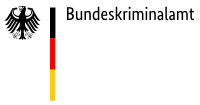News
In view of the Digital Services Act (DSA), which entered into force on 16 November 2022 and the resulting implementation requirements, the Federal Criminal Police Office (BKA) offers an information meeting for all Hosting Service Providers obligated by article 18 DSA.
The meeting will be held online from 02 PM CET until probably 04 PM CET on 04 December 2024.
Topics we would like to discuss during the meeting include:
Insights and trends since 25 August 2023 resp. 17 February 2024
- Current statistics and challenges
- EU activities
You can register to the meeting via e-mail: u-entrance@bka.bund.de. Access data for the web-conference will be provided after registration.
The Regulation (EU) 2022/2065 of the European Parliament and of the Council of 19/10/2022 on a Single Market For Digital Services and amending Directive 2000/31/EC (Digital Services Act – DSA) entered into force on 16/11/2022.
The Digital Services Act as part of the "Digital Strategy for Europe" aims at "creating a safe, predictable and trustworthy online environment by establishing harmonised requirements for the provision of intermediary services on the EU single market (Art. 1). The Digital Services Act sets out, inter alia, due diligence and transparency obligations for providers of intermediary services (Chapter III of the DSA), including, for example, the obligation to establish points of contact for authorities and citizens (Arts. 11, 12, 13 of the DSA); rules on liability (Chapter II of the DSA); and an obligation of hosting service providers to establish notice and action mechanisms regarding "illegal content" (Art. 16 of the DSA).
The term "intermediary service" is defined in the Regulation as the provision of "mere conduit", "caching" or "hosting" services (Art. 3 (g) of the DSA). In Germany, these are, inter alia, DNS services, network operators, cloud computing and web hosting services, online platforms (such as social media or online marketplaces) and online search engines. Hosting service providers are defined by the DSA as services "consisting of the storage of information provided by, and at the request of, a recipient of the service" (Art. 3 (g) (iii) of the DSA).
The Digital Services Act applies irrespective of the providers' place of establishment; the only decisive factor is that they offer services to users based in the EU (Art. 2).
National judicial or administrative authorities may order providers of intermediary services to take action against illegal content (Art. 9) and to provide certain specific information (Art. 10).
Hosting service providers, including online platforms, are subject to additional notification obligations towards the law enforcement and/or judicial authorities for contents which involve "a threat to the life or safety of a person or persons" (Art. 18).
On 25/04/2023, the European Commission designated 17 very large online platforms (VLOP) which have more than 45 million active users per month. The statutory notification obligation as laid down in Art. 18 of the Digital Services Act as well as the other obligations under the DSA apply to them from 25/08/2023, according to Art. 92, and to all other hosting service providers from 17/02/2024, according to Art. 93.
Tasks of the Bundeskriminalamt in connection with Article 18 of the Digital Services Act
Section 13 of the German act implementing the DSA, namely the Digitale Dienste Gesetz - DDG, designates the BKA as the central national body in Germany for the receipt and initial processing of notifications pursuant to Article 18 of the DSA.
The responsibility for the handling of cases in a more specific sense lies with the local law enforcement and judicial authorities in charge.
Point of contact for hosting service providers
Since 25/08/2023, the BKA has been providing a notification portal to the service providers subject to statutory obligations.
It can be reached at: https://u-entrance.bka.de.
For access registration, any replies or responses in connection with the notification portal or notifications pursuant to Art. 18 of the Digital Services Act, the BKA e-mail address u-entrance@bka.bund.de has been set up for the providers obliged under the DSA.
Please note that this e-mail address is not intended for the receipt of notifications submitted under Article 18 of the DSA.
You can also reach us by phone at +49 611 55-35062 between 8am and 4pm on regular working days. In case of urgent matters outside the office hours, calls made to this number will be redirected to the BKA's 24-hour service desk.
Note
The above-described procedure for providing information giving rise to a suspicion that a criminal offence has taken place exclusively applies to service providers subject to statutory obligations in accordance with Art. 18 of the DSA. Members of the public as well as entities not falling within the scope of Art. 18 of the DSA can report Internet-related criminally relevant content to their local police authorities, to any other organisation committed to making the Internet a safe place or to their local online police station.
Further authorities involved
Under the DSA, the national Digital Services Coordinator - DSC is responsible for supervising and enforcing the DSA in the relevant EU member state and for coordinating matters at national and EU level. Pursuant to section 14 et seqq. of the German Digitale Dienste Gesetz - DDG, the independent national Digital Services Coordinator - DSC holding that responsibility in Germany is based at the German Federal Network Agency (Bundesnetzagentur - BNetzA). The very large online platforms and very large online search engines designated by the European Commission generally fall within the area of responsibility of the Commission.
The national DSC in Germany is supported in its work by the Federal Centre for the Protection of Children and Minors in the Media (Bundeszentrale für Kinder- und Jugendmedienschutz - BzKJ), the North Rhine-Westphalia Land Media Authority (Landesanstalt für Medien NRW), which coordinates the assistance provided by the entities in charge of media supervision, and by the Federal Commissioner for Data Protection and Freedom of Information (Bundesbeauftragter für den Datenschutz und die Informationssicherheit - BfDI).
